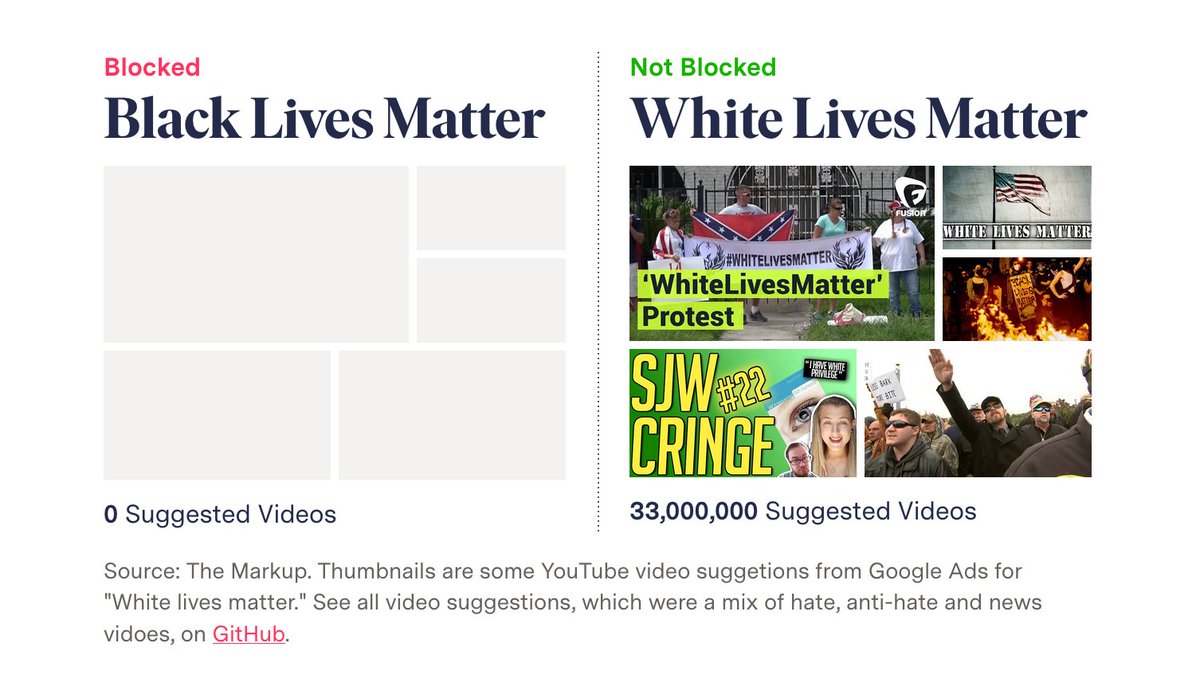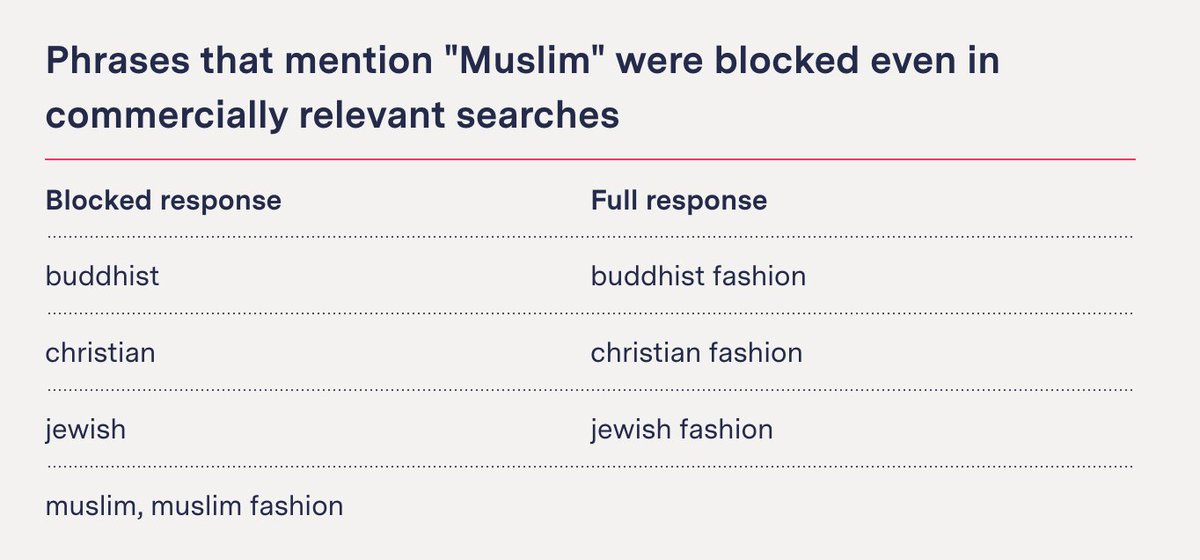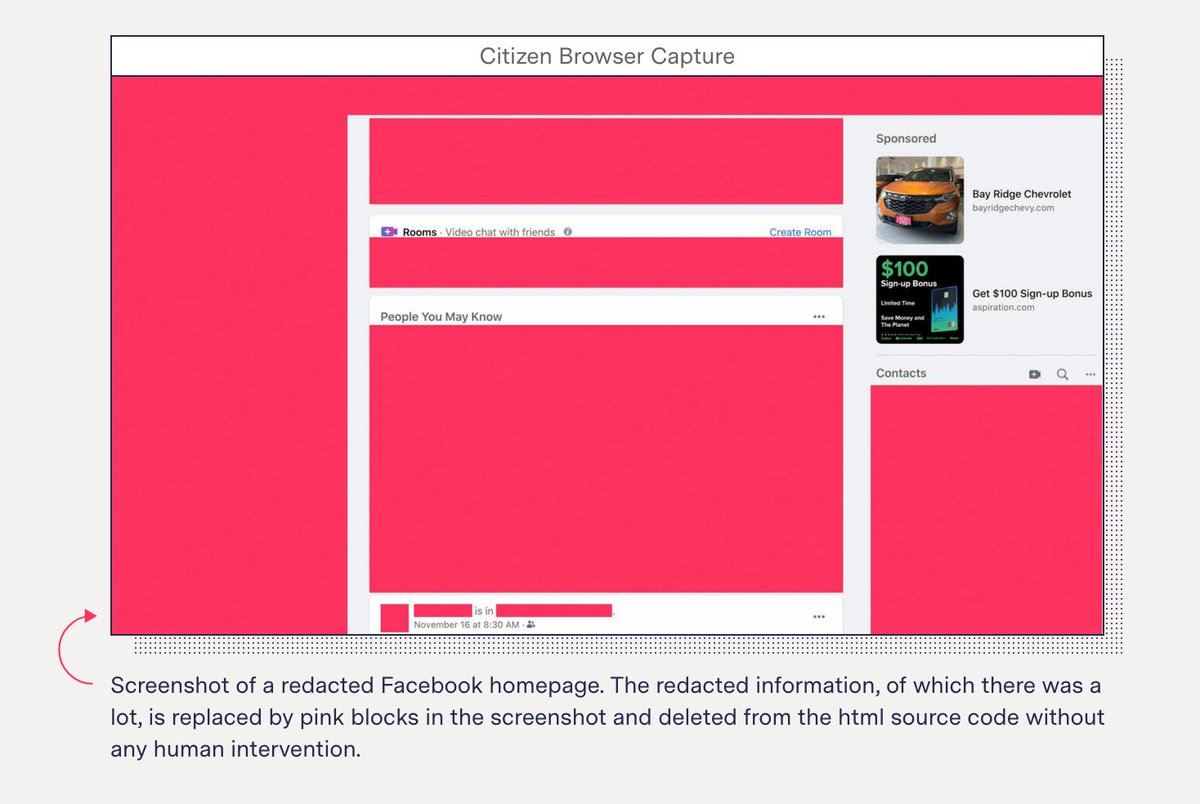
Investigative journalist. Founder, @proof__news, @NYTOpinion writer. Founded @themarkup. Priors @ProPublica @WSJ. Author: Dragnet Nation, Stealing MySpace.
How to get URL link on X (Twitter) App










 2/ @leonyin and @asankin found that YouTube’s ad portal blocked search results for one-third of the 62 racial & social justice phrases tested.
2/ @leonyin and @asankin found that YouTube’s ad portal blocked search results for one-third of the 62 racial & social justice phrases tested.

 2/ Many hate terms weren’t blocked in YouTube’s ad buying portal at all. We tested 86 well-known hate terms and phrases, and only one-third were blocked. Unblocked terms included:
2/ Many hate terms weren’t blocked in YouTube’s ad buying portal at all. We tested 86 well-known hate terms and phrases, and only one-third were blocked. Unblocked terms included:




